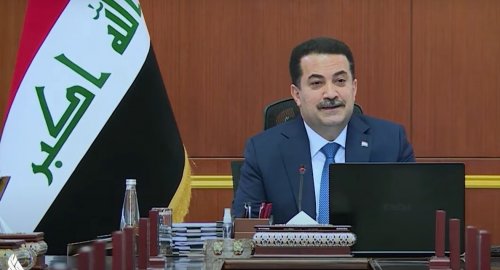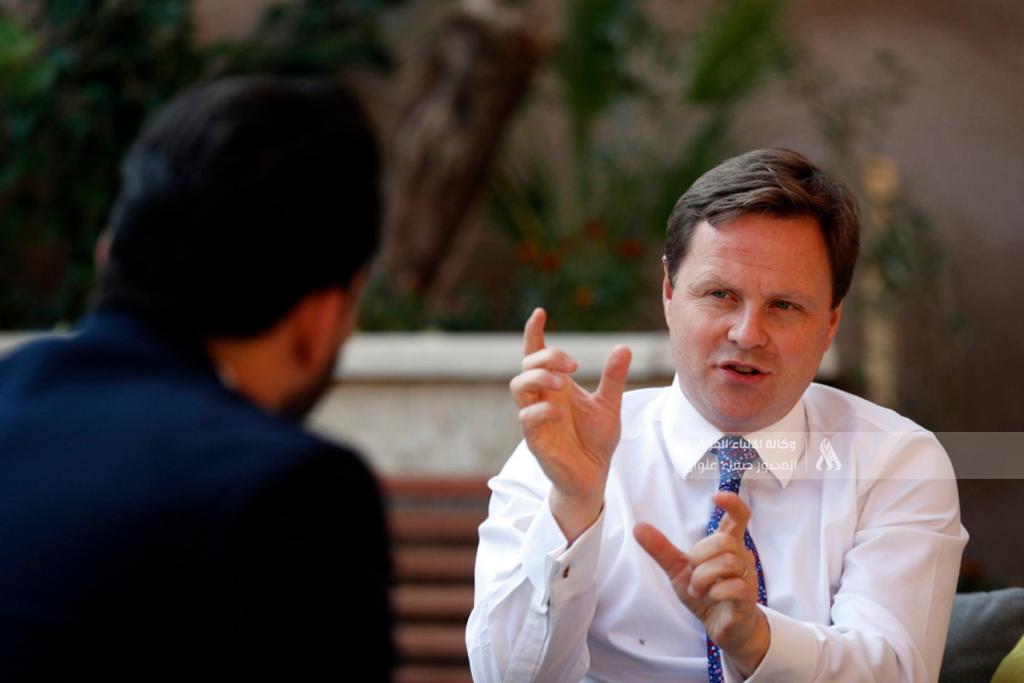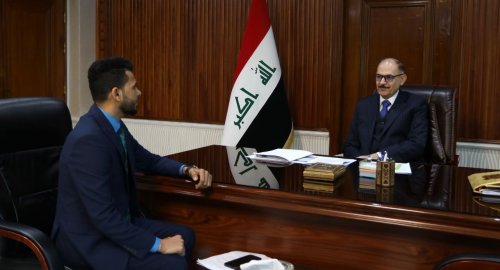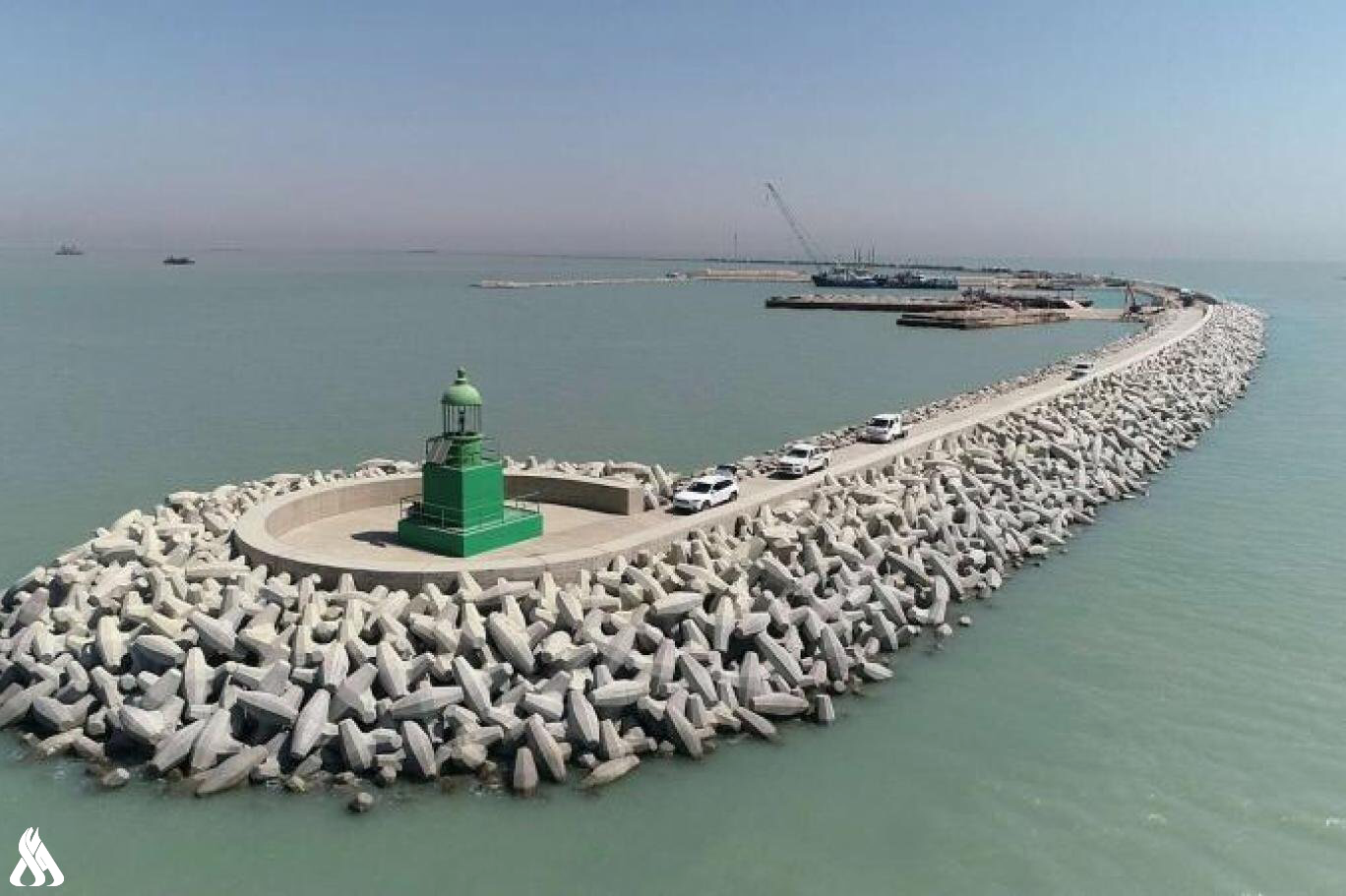
American magazine: Iraqi Prime Minister is serious about facing the challenge of corruption and climate change

- 29-12-2023, 18:18
Followed by-INA
The American journal Newsweek published an article that touched on Iraq’s measures in the face of climate change, and the movements of Prime Minister Muhammad Shi'a Al -Sudani, to combat corruption and pursue the corrupt, indicating that there is a clear seriousness.
The article prepared by James Watt, the former British diplomat who worked as an ambassador to Lebanon, Jordan and Egypt, and published by the American Newsweek magazine entitled (What does the result of the COP28 conference that was held in the Emirate of Dubai in the Emirates of the Parties to the United Nations Convention on Climate Change for Iraq).
Drought has long been a major issue in the Middle East with the first water treaty dating back over 4,500 years. Extreme weather events including large-scale drought, exacerbated by climate change, have resulted in increased desertification and ultimately the suffering of millions. With COP28 recently concluding, the question remains as to whether the "Dubai Consensus" will positively impact countries like Iraq. Watt said.
With the Tigris and Euphrates rivers suffering from excessive drought, as highlighted by the likes of The New York Times and The Washington Post, Iraq has emerged as a particularly vulnerable nation.
Calling for enhanced international climate cooperation, Iraqi Prime Minister Mohammed Shia' Al Sudani remarked at the United Nations General Assembly (UNGA) that "the cradle of civilization must not be allowed to die of thirst."
The U.N. has warned that, since 1973, Mesopotamian marshes have lost 78 percent of their total water resources. Moreover, water availability in the Middle East is set to decrease by an additional 30 percent by 2050 because of climate change.
Agriculture, food security, and the economic livelihood of millions who depend on farming are at risk. Echoing these concerns, Iraqi President Abdul Latif Rashid emphasized in Dubai that this regional crisis goes beyond water scarcity and affects crucial aspects of the country's development.
Iraq has launched various initiatives to combat climate change, key among them are efforts to enhance water security and eliminate waste. Although its delegation pushed for the agreement to exclude language around fossil fuel phase-out due to its economic reliance on hydrocarbons, climate change remains a real concern for Baghdad.
Crucially, Baghdad's initiatives appear to be aligned with the Dubai Consensus which has called for the protection of freshwater ecosystems, the implantation of urban water resilience initiatives, the tripling of renewable energy capacity by 2030, and the operationalizing of a Loss and Damage fund.
The fund, which has been met with widespread criticism for not going far enough, nonetheless represents a positive initial step taken by major emitters to acknowledge the damage caused by their actions.
According to the most recent World Bank data, Iraq's CO2 emissions per capita per annum amounted to 3.8 metric tons, significantly less than the U.S.' emissions of 13 metric tons and only 12 percent of Qatar's emissions of 31.7 metric tons.
With COP28's conclusion, the question now is whether the urgent demands by countries suffering from climate change like Iraq can be met, and how the Summit's outcomes can directly deliver needed change. The narratives delivered at COP28 mark a positive step, but the actions taken are insufficient at present.
Iraq is still awaiting a basin-wide consensus agreement among the riparian countries on the management of the Euphrates and Tigris. While initiatives for better water resource management are essential, Iraq will find it difficult to succeed in this area when the resource is becoming increasingly scarce. Furthermore, the resources allocated by the Loss and Damage fund are widely regarded as inadequate to compensate those countries most impacted by climate change.
Nevertheless, despite the outcomes of COP28 appearing to fall short of addressing Iraq's climate concerns, this does not mean Baghdad's participation has failed to yield some positive results, especially as it looks to re-assert itself on the world stage.
Represented by a 300-strong delegation, Baghdad has showcased its firm commitment to the climate cause and its continued desire to address the urgent needs of its growing population ,which have long suffered from conflict and instability, something that has become a core component of Al Sudani's administration.
With the inauguration of its first ever pavilion at a U.N. Climate Change Conference, the Iraqi climate crisis has also been brought to the forefront of international discussions. These efforts come on top of the country's historic accession to the U.N. Water Convention in March, making it the first country in the Middle East to do so.
These actions demonstrate Al Sudani's recognition of the climate threat for Iraq's growing population as well as his efforts to secure an international agreement on the sustainable use of transboundary water resources. Iraq has also committed to reducing CO2 emissions from oil and gas production and to improve its electricity grid via renewable projects.
The fight against corruption, another priority highlighted by the prime mister, has yielded positive results meaning that the country is now attracting significant foreign direct investment including for renewable energy projects, as evidenced by its recent partnership with France's Total Energies, a deal praised by the U.S. Department of State.
Iraq waits patiently for the nations sharing its water resources to rise to the challenge of distributing it fairly, like their predecessors in Mesopotamia did over 4,500 years ago. In the meantime, the Dubai Consensus appears to have opened the gateway for much needed change, something Iraq's current administration hopes to tackle head on.
Putin agrees to stop targeting Ukrainian energy facilities for 30 days
- International
- 09:20












